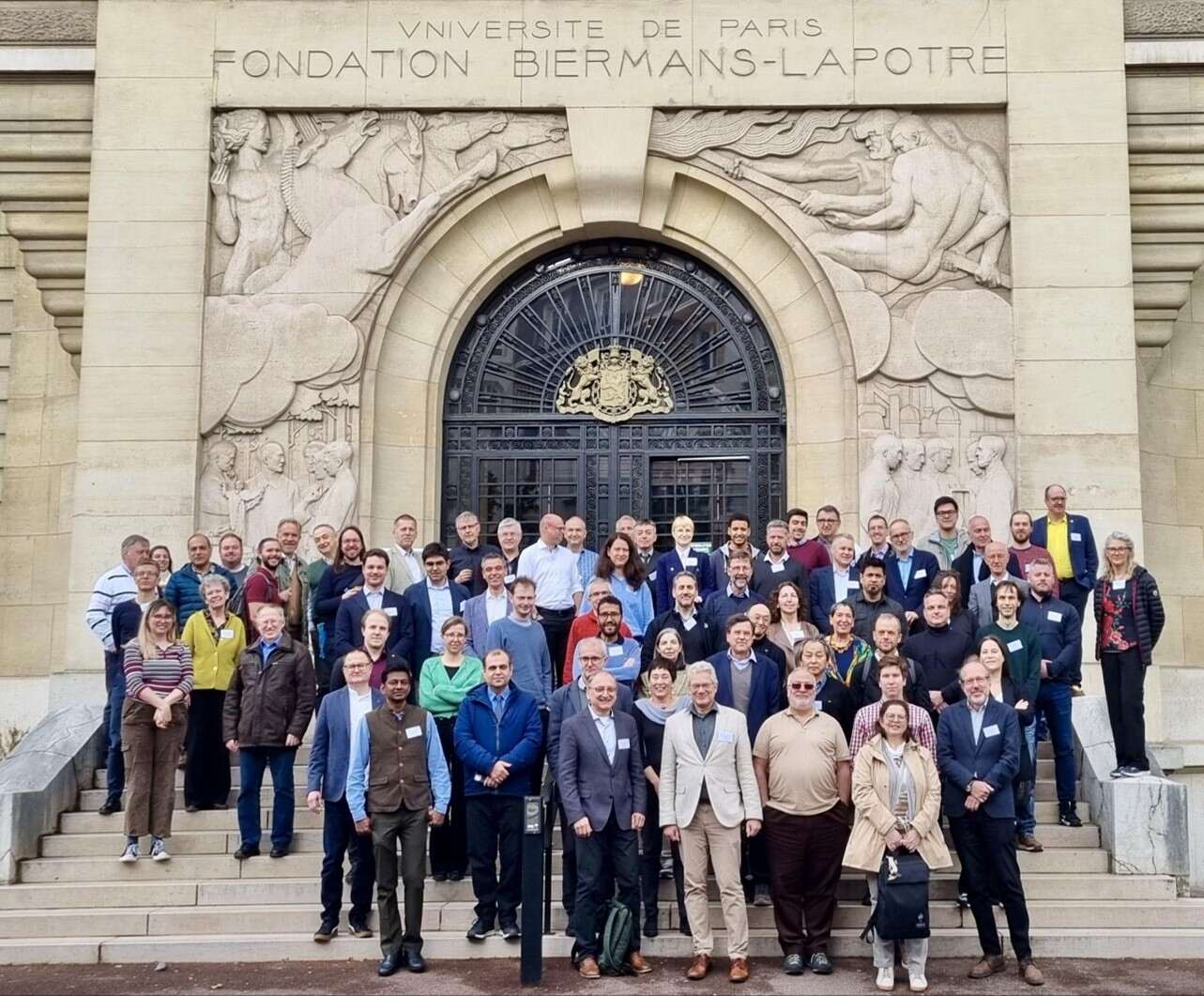I.FAST holds its third annual meeting in Paris

Photograph of the participants of the 2024 I.FAST meeting, courtesy Antoine Le Gall, CERN.
Between 16 – 19 April, the European particle accelerator community gathered in Paris for the 3rd annual meeting of the I.FAST project. Funded with 10 M€ by the European Union as part of the Horizon 2020 programme, I.FAST brings together a broad consortium of 47 institutes and industrial companies to explore innovative options and develop cutting-edge technologies for future accelerator platforms.
The Department of Physics’ very own Professor Carsten P Welsch joined the meeting as a member of the project’s external Scientific Advisory Committee (SAC), whose role it is to provide critical feedback on progress made and to make recommendations for the remaining R&D plans.
As in the previous two years, particular emphasis was placed on meetings between the academic world and industry, both large and small. An entire day was devoted to discussing the challenges of cryogenics in Big Science, and another focus was put on sustainable research which becomes increasingly important for large scale research infrastructures. Experts from outside of the accelerator community gave insightful presentations on Life Cycle Assessment (LCA), energy monitoring and ways to reduce the environmental footprint of accelerators.
The annual meeting provided an excellent opportunity to discuss progress made in the project's core areas: new accelerator applications, light sources, permanent magnets, additive manufacturing, and superconducting materials. Progress on the eight projects selected as part of the I.FAST Innovation Fund, designed to stimulate innovation for accelerator sustainability, was also presented.
Professor Welsch said: “The SAC very much appreciated the detailed and thorough responses to last year’s recommendations. We were delighted to see the excellent progress made across the project and strongly encourage continued planning for support beyond I.FAST for future accelerator-based science and technology developments. Ideally, this would be done in coordination with supporting collaborations and through co-innovation between universities, research infrastructures and industry.”
On the last day of the event, a special round table discussion on the importance of Diversity for Innovation took place with Professor Welsch as one of the panel members reporting on how he created an inclusive environment in Liverpool’s Physics Department, and the barriers that had to be overcome over the past decade.
As it enters its final year, the I.FAST project will focus on the impact of its research. The next and final annual meeting shall be held in April 2025 in Poland.
More information and all talks can be found on the event website.